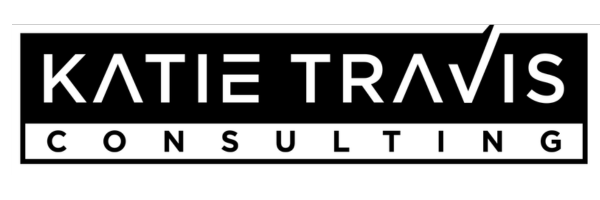Specializing in transitioning teachers + military veterans!
Blog

Mastering Salary Negotiation: Get Paid What You Deserve
Mastering Salary Negotiation: Get Paid What You Deserve
Introduction: Why Pay Transparency Matters
Salary negotiations can be tricky, but one thing is clear—it's time for companies to embrace pay transparency. In today's competitive job market, professionals are becoming more informed and expect open discussions about compensation. The question remains: are companies stepping up to the challenge?
Key Strategies for Successful Salary Negotiation
When it comes to negotiating an offer, preparation is key. Being informed and confident will put you in a stronger position. Here are a few essential strategies to get started:
Research the Market Rate
Before entering any negotiation, it’s critical to understand the current market value of the role you’re pursuing. Utilize websites like Glassdoor and PayScale to get a comprehensive idea of what similar positions in your industry are paying. This knowledge will serve as leverage during discussions.
Highlight Your Unique Value
During negotiations, don’t just focus on the numbers—emphasize your unique value to the organization. What skills, experiences, and successes do you bring to the table? Be prepared to demonstrate how you can contribute to the company's goals and why that makes you deserving of the higher pay.
Stay Flexible but Firm
While flexibility is important, you also need to set boundaries. Know your absolute minimum and be willing to walk away if the offer doesn't align with your worth. At the same time, be open to compromises, such as additional benefits or perks if the salary isn’t negotiable.
Why Pay Transparency Is the Future of Hiring
It's no secret that pay transparency is becoming a hot topic. More companies are being called out for hiding their salary bands, leading to unequal pay. Pay transparency promotes fairness and trust within an organization, creating a healthier work environment. Employees deserve to know what their colleagues are earning for similar work.
Which Companies Are Doing It Right?
Some forward-thinking companies have already started leading the way. Firms like Buffer and Whole Foods openly share salary information, and it has led to increased employee satisfaction and retention. More organizations should follow suit, embracing transparency to foster trust.
Get Professional Help with Negotiations
Need more personalized guidance? As a career coach, I'm here to help you navigate through your salary negotiation with ease. Together, we’ll develop a winning strategy that will have you earning your worth in no time. Don’t hesitate to reach out if you need support in this crucial aspect of your career.
Conclusion: It’s Time to Advocate for Yourself
Now is the time to stand up for what you deserve. Armed with the right strategies and a clear understanding of market trends, you can confidently enter salary negotiations and get paid what you're worth. Remember, pay transparency is the future—and advocating for fair compensation benefits not just you, but the entire workforce.
Remember this post the next time you negotiate!

Mastering Salary Negotiation: Get Paid What You Deserve
Mastering Salary Negotiation: Get Paid What You Deserve
Introduction: Why Pay Transparency Matters
Salary negotiations can be tricky, but one thing is clear—it's time for companies to embrace pay transparency. In today's competitive job market, professionals are becoming more informed and expect open discussions about compensation. The question remains: are companies stepping up to the challenge?
Key Strategies for Successful Salary Negotiation
When it comes to negotiating an offer, preparation is key. Being informed and confident will put you in a stronger position. Here are a few essential strategies to get started:
Research the Market Rate
Before entering any negotiation, it’s critical to understand the current market value of the role you’re pursuing. Utilize websites like Glassdoor and PayScale to get a comprehensive idea of what similar positions in your industry are paying. This knowledge will serve as leverage during discussions.
Highlight Your Unique Value
During negotiations, don’t just focus on the numbers—emphasize your unique value to the organization. What skills, experiences, and successes do you bring to the table? Be prepared to demonstrate how you can contribute to the company's goals and why that makes you deserving of the higher pay.
Stay Flexible but Firm
While flexibility is important, you also need to set boundaries. Know your absolute minimum and be willing to walk away if the offer doesn't align with your worth. At the same time, be open to compromises, such as additional benefits or perks if the salary isn’t negotiable.
Why Pay Transparency Is the Future of Hiring
It's no secret that pay transparency is becoming a hot topic. More companies are being called out for hiding their salary bands, leading to unequal pay. Pay transparency promotes fairness and trust within an organization, creating a healthier work environment. Employees deserve to know what their colleagues are earning for similar work.
Which Companies Are Doing It Right?
Some forward-thinking companies have already started leading the way. Firms like Buffer and Whole Foods openly share salary information, and it has led to increased employee satisfaction and retention. More organizations should follow suit, embracing transparency to foster trust.
Get Professional Help with Negotiations
Need more personalized guidance? As a career coach, I'm here to help you navigate through your salary negotiation with ease. Together, we’ll develop a winning strategy that will have you earning your worth in no time. Don’t hesitate to reach out if you need support in this crucial aspect of your career.
Conclusion: It’s Time to Advocate for Yourself
Now is the time to stand up for what you deserve. Armed with the right strategies and a clear understanding of market trends, you can confidently enter salary negotiations and get paid what you're worth. Remember, pay transparency is the future—and advocating for fair compensation benefits not just you, but the entire workforce.
Remember this post the next time you negotiate!
Dynamic Speaker + Facilitator with Career Expertise
Katie Travis Consulting is a BBB Accredited Business.
We are committed to providing our clients first-class service with a sharp focus on honesty and integrity.



